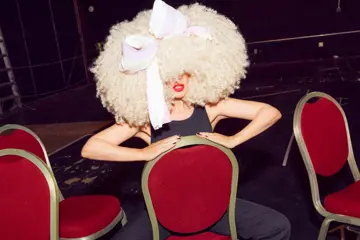"Theatre and sports are ideological opposed, but not in this circumstance – the National Championships is more than just a classroom game of space jump. It's “the ultimate live theatre,” says director of the National Championships Marko Mustac. “Audience members stand up out of their seats and cheer when a team pulls a top scoring scene out of the bag – it's beautiful.”
For actors, “it's a very generous art form – you have to listen, flow, and work with other people constantly being ready to expose yourself. You've got to be prepared to take risks on stagen which is why it's so scary” Mustac first fell in love with theatresports at the Belvoir St Theatre when they had Sunday night shows: “[They were a] primitive, silly, and fun version of theatresports, I went to see one as a young actor and loved it. I was blown away at the fun, joy and creativity of it. An actor is caught in the moment and suddenly they realise they have to transform or become someone else; to see [actors] in that moment and go, 'Oh my goodness' and then change and say or do something is thrilling.” It's a risky sport, and this is where the sporting analogy comes in, “It's kind of like, can they do it?” says Mustac.
A Sydneysider, Mustac fondly remembers travelling down to Melbourne's comedy festival. “We would just be jealous because they had such fabulous festival. But now [Sydney Comedy Festival] is the real deal, which is just great. We actually get to go home and sleep, which is nice after a festival!”
To be good at theatresports you gave to think on your feet, constantly. “For an audience,” Mustac says, “it is the freshness of the immediacy of it – they give you a suggestion and you're going to do something with it.” Shows like Thank God You're Here and Whose Line Is It Anyway? are televised versions of this comedic art form that live on stage is quiet simply, more risky. “How do you write, direct, act, move yourself around the stage and be funny?” asks Muscat. “When it works it's beautiful.”
Don't miss a beat with our FREE daily newsletter
This show is of sporting proportions – choose a team, get behind the actors or sportsmen, depending on your preference. They must “see what happens and fail,” say Muscat, “because I think that's the thing – when you take a risk in improv and do something really in the moment, you're taking a risk of failing and looking like an idiot.”















